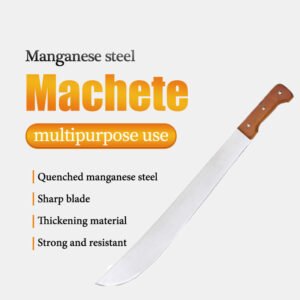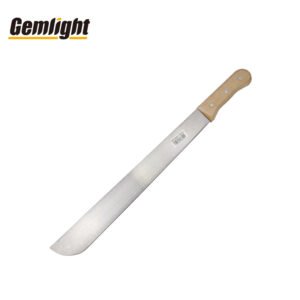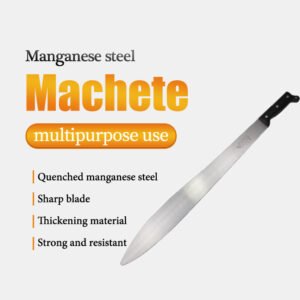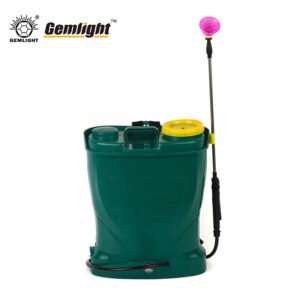1:The Cultural and Practical Power of the Machete Dominicano
The machete dominicano, or Dominican machete, is far more than a traditional cutting tool—it’s a symbol of agricultural resilience and craftsmanship in the Dominican Republic. Rooted in both utility and cultural heritage, this blade has served generations of farmers, harvesters, and field workers in the Caribbean. Its design reflects a balance of strength, efficiency, and simplicity, making it ideal for challenging environments where productivity and endurance matter most.
What makes the machete dominicano particularly appealing to African markets is its alignment with many local practices. In Sub-Saharan and West African regions, tools must perform under extreme heat, dense vegetation, and rugged rural terrain. The machete dominicano, often forged with high-carbon steel and shaped for heavy brush and crop clearing, meets these demands effortlessly. It resembles traditional African machetes such as the Panga or Bolo, but brings a unique weight distribution and slicing edge profile that improves performance for chopping sugarcane, clearing cassava fields, or cutting small trees.
Additionally, this tool carries the influence of community heritage. In the Dominican Republic, families often pass down machetes through generations. Likewise, in Africa, tools of work are tied to identity, land stewardship, and local craftsmanship. The similarities in symbolic and practical value make the machete dominicano a natural fit for African professionals seeking tools with deep-rooted field efficiency.
In a globalized tool market, African buyers are increasingly looking for imported blades that can both outperform and outlast local alternatives. The machete dominicano, with its proven record in harsh, tropical landscapes, delivers a compelling combination of authenticity and utility—making it a logical choice for modern-day agricultural professionals across Africa.
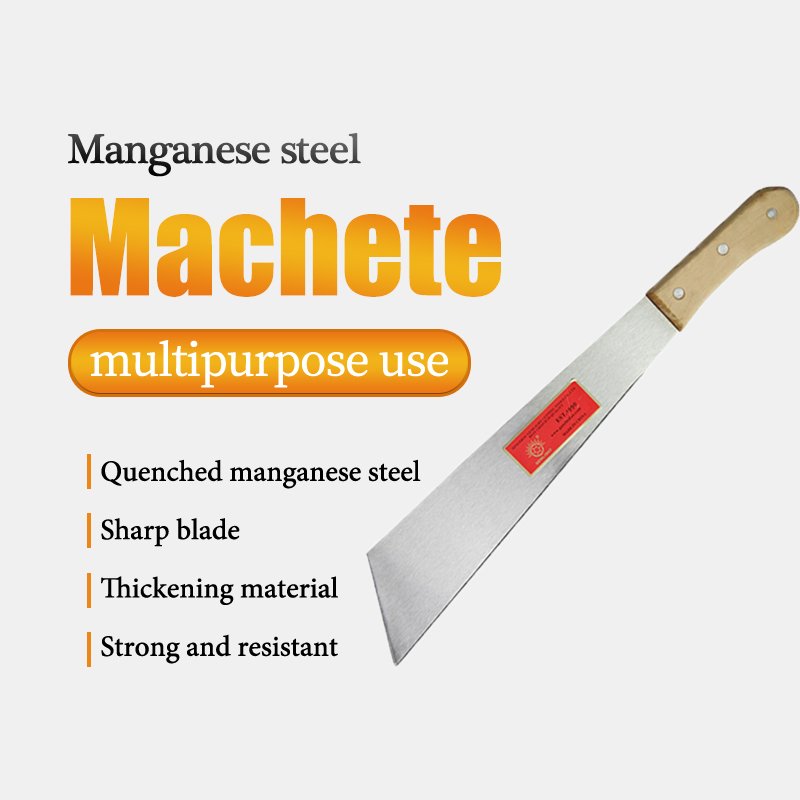
2:Why the Dominican Republic Machete Fits African Terrain
The Dominican Republic machete is designed for real-world tasks that extend beyond conventional gardening. For African terrain, especially in regions like Ghana, Nigeria, Kenya, and Tanzania, field tools must be adapted for dense vegetation, variable rainfall patterns, and long work hours. The Dominican Republic machete, with its robust construction, is engineered to thrive in exactly these conditions.
Structurally, most Dominican Republic machetes feature a long, flat blade typically between 18 and 24 inches, crafted from durable carbon steel or manganese-alloyed steel. This composition allows the blade to retain sharpness through repeated impact, even when used on thick cane stalks, woody shrubs, or invasive jungle undergrowth. The blades are usually not overly thick, which adds speed and swing efficiency—key when clearing multiple acres manually.
The handle, often made of polished hardwood or textured polymer, ensures a secure grip in both dry and wet conditions. African users working in hot, humid, or rainy climates will benefit from the ergonomic handle design, which reduces fatigue during repetitive swinging.
Functionally, these machetes offer versatility across multiple African applications:
- Clearing farm plots for new crop cycles
- Harvesting sugarcane, maize stalks, and oil palm fronds
- Trimming hedgerows and boundary fences
- Butchering and outdoor survival use
In fact, Dominican Republic machetes are increasingly finding their way into East African bush camps and Central African agricultural cooperatives. The tool’s simplicity and low-maintenance design are appreciated in rural supply chains where access to sharpening services or spare parts may be limited.
By bridging the best of traditional design with export-grade quality, the Dominican Republic machete stands out as an ideal import solution for African distributors and field supply companies looking to expand their catalog of rugged, field-tested tools.
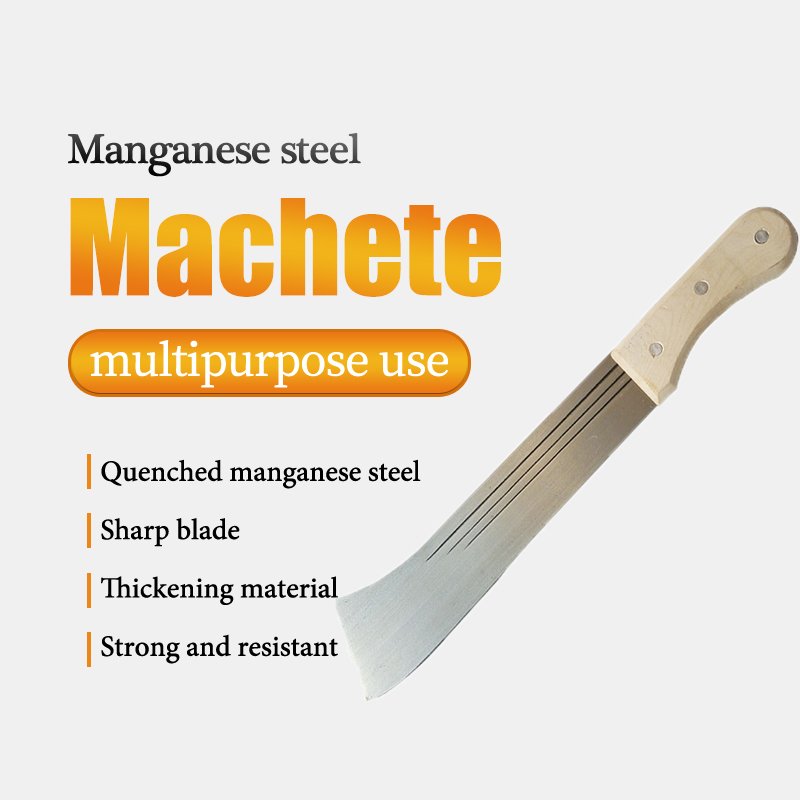
3:Versatile Uses of a Dominican Machete in Agriculture and Survival
One of the major strengths of a Dominican machete is its multi-purpose application across diverse environments. In African rural and peri-urban zones, where access to motorized tools is limited or cost-prohibitive, the machete remains the go-to instrument for countless field tasks. The Dominican machete, with its fine-tuned blade geometry and comfortable grip, supports a full range of uses—from farm chores to outdoor survival.
In agricultural use, this machete is ideal for:
- Chopping down plantains, bananas, and sugarcane
- Clearing invasive grasses and climbers from yam farms
- Trimming cassava roots and cutting cocoa branches
- Harvesting millet or sorghum by hand
Its precision and weight balance make it suitable for both delicate harvesting and hard chopping tasks. This adaptability allows field workers to minimize tool switching, thereby improving productivity throughout the day.
Beyond agriculture, the machete dominicano is favored for survival and bushcraft. Hunters and forest dwellers in Cameroon, the DRC, and Uganda often use it for:
- Trail clearing in dense jungle
- Cutting firewood or constructing simple bush shelters
- Processing meat in the field
- Self-defense against wild animals
Some models also come with partially serrated backs or sharpened points, turning them into hybrid machete tools suitable for tasks like sawing or piercing—key for survival kits or remote workers.
Importantly, the longevity of Dominican machetes means they provide lasting value. With proper care—such as occasional sharpening and oiling—the blade can last several years even under daily use. This durability is a key consideration for budget-conscious users in developing regions.
In summary, the Dominican machete is more than a single-purpose tool; it’s a portable work solution designed for resilience and performance in the African outdoors.
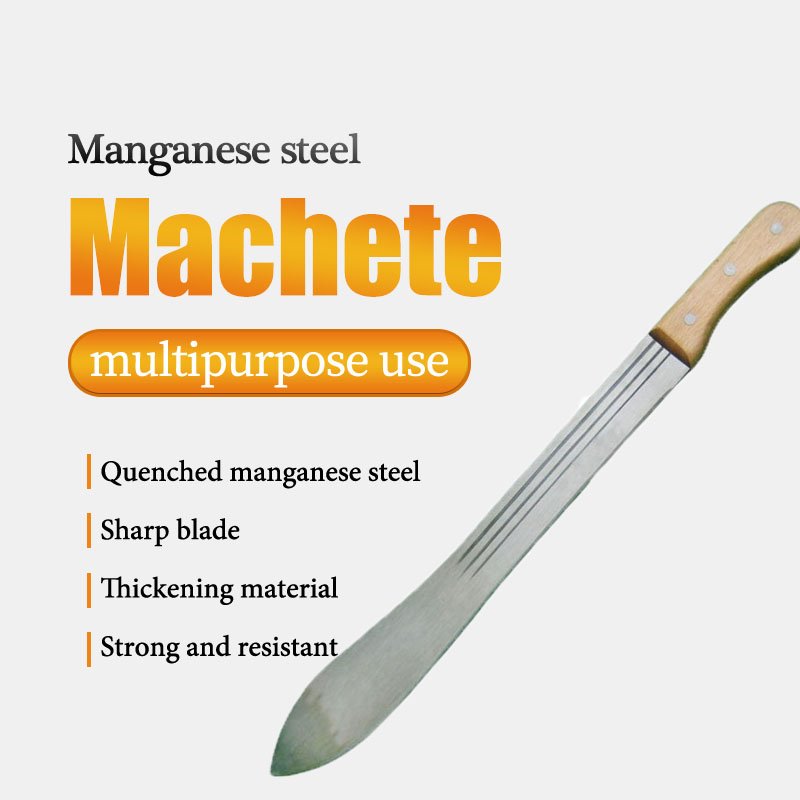
4:Factory Direct Machete Dominicano – Our Featured Product Line
As a manufacturer and exporter of high-performance agricultural tools, we proudly introduce our factory-direct machete dominicano product line—specifically curated for African buyers seeking reliability, affordability, and professional-grade design.
Our Dominican-style machetes are crafted using heat-treated high carbon steel with blade lengths ranging from 16 to 24 inches, adaptable for both dense brush cutting and precision harvesting. Each blade undergoes rigorous hardness testing to ensure edge retention and resistance to bending or cracking.
Key product highlights:
- Cane Machete Dominicano: Wide-bladed model perfect for sugarcane and banana plantations
- Pointed Tip Machete Dominicano: Designed for jungle clearing and trail maintenance
- Heavy-Weighted Bolo Machete: Ideal for tasks requiring extra chopping force
- Panga Machete: Customized for East African forestry and savanna vegetation
- Combo Machete with Sheath: Tailored for bushcraft, outdoor security teams, and rural patrol units
Handle options include lacquered wooden grips, fiberglass-reinforced plastic, and rubberized anti-slip variants to suit different climates and user preferences.
We support full OEM/ODM customization, including:
- Laser-etched branding or logos
- Color-coded handles for product segmentation
- Packaging in multi-language formats for export compliance
- Low minimum order quantities for new market testing
Our factory maintains strict quality control procedures and ISO-compliant manufacturing lines. We ship directly from China to major ports across West, Central, and East Africa, ensuring timely delivery and cost efficiency.
Whether you are a wholesaler, distributor, or procurement manager for government/agricultural agencies, our machete dominicano line is your reliable choice for high-performance, field-ready tools that meet real-world African challenges.

